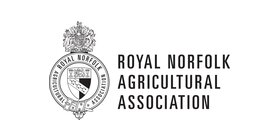Report Synopsis
Breaking the Silos: Global Best Practice in Agricultural Policy Design
We face a time of great uncertainty but also opportunity for UK land management. Debate in the UK is focusing on a new post-hoc justification for a budgetary transfer from taxpayers to land managers through environmental investment or climate mitigation. My travel insight is that agricultural policy only exists as a function of higher policy priorities. This does not mean that it is not necessary to invest in agriculture, simply that the value of the investment is dictated by the extraneous and broader factors surrounding agricultural businesses.
The broader economic rules in any country are the ones that really influence how farm businesses behave. These market organisation rules can be protective of farmers, or expose them to competition from imports or innovation. In the UK context, if current levels of protection were removed, farming would be forced to seek radical and transformational efficiencies. The difference between societal expectations of land use and the market reality created by national economic function creates the need and justification for agricultural policy investment. In this case, the budgetary need may be higher, or lower, than it is presently.
Risk and responsibility need to be allocated differently if Government wishes farming to be less reliant on subsidy.
The interaction between environmental policy and food policy is poor. This leads to tension and unconstructive debate over the organisation of food systems. Understanding the inherent contradictions in how farm businesses are judged is crucial, so that policy can be debated coherently and constructively. Government has a central role in managing this debate. As we move away from the CAP, I suggest that the agricultural industry must be open-minded if it is to embrace and evolve to meet the new expectations of social and political accountability.
A voluntary approach to protecting the environment in supply chains has been proven to be inadequate, as prevailing market organization rules do not require supply chain actors to deliver sustainability. Driven by the environmental and climate crisis, this expectation is changing, with corporates increasingly expected to adopt new practices. Natural capital accounting may be a useful tool in this, but it is limited by its incomplete allocation of property rights over natural assets. I don’t consider full disclosure to be beneficial, but alternative standards in contractual food supply chain relations could help.
However, to drive real change in food systems, I propose that legislation will be necessary. Consider the way that the Modern Slavery Act 2015 works to require supply chains to verify that no human exploitation has occurred in their supply chains. A Modern Food Act could do the same for environmental reliance in supply chains. This would set out the hierarchy of principles under which food (and fibre and fuel) was sourced and produced for the UK and would ensure that no UK supply chain could undercut UK environmental protection standards by sourcing from uncertain or lower standard supply chains overseas.
Emily Norton

The Royal Norfolk Agricultural Association

Similar Reports
- 2024
Is tracking carbon on farm good for business?
Pippa Jones - 2022
Can carbon neutral insects be farmed profitably?
Dr Olivia L. Champion - 2022
Sustainable financing of Brazilian farming: the role that supply chains can play and carbon markets probably will not
Renata Rossetto Lopes - 2022
Cannabis in Australia: cultivating at scale and lessons from overseas markets
Max Edgley
